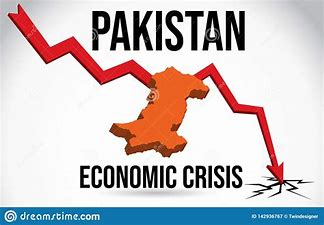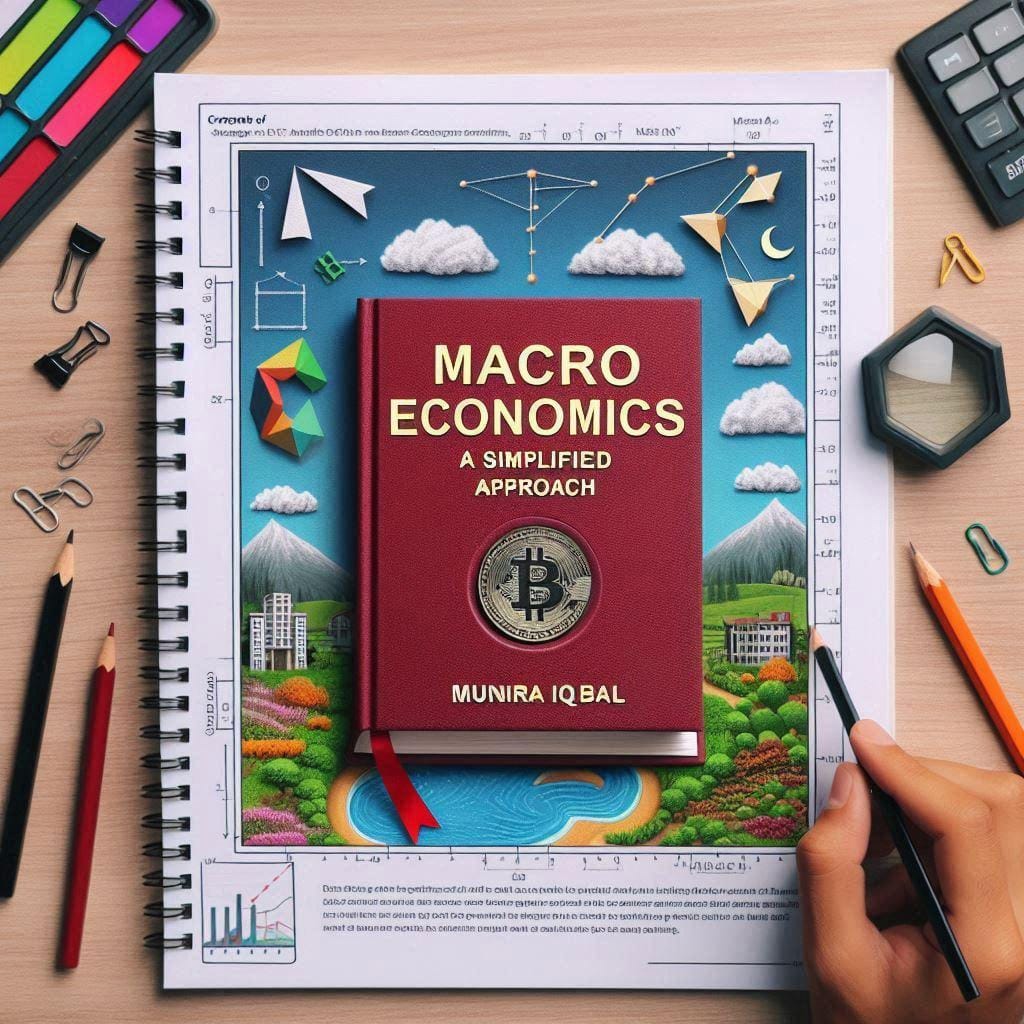Pakistan’s economy experienced significant growth in 2022, with a rate of 6.17%. However, following the regime change, the economy sharply declined to -0.17% in 2023. With the recent IMF conditions and agreements made under the PDM 2 government, the economic situation is likely to worsen further. The austerity measures required by the IMF will exacerbate inflation, increase unemployment, and place an even heavier tax burden on the common people. Essential services may face cuts, and the privatization of state-owned enterprises could lead to more layoffs. For the ordinary citizen, this economic approach will deepen their financial struggles and reduce their chances of economic relief.
Notable Points of the IMF Agreement 2024
- IMF Agreement: IMF approved a 37-month program for Pakistan under the Extended Fund Facility (EFF) worth SDR 5,320 million (around US$7 billion). Immediate disbursement of SDR 760 million (about US$1 billion) was made.
- Economic Progress: Pakistan made progress with 2.4% growth in FY24, lower inflation, and better foreign exchange reserves.
- Challenges: Pakistan still faces challenges, including low investment, weak governance, a narrow tax base, and inadequate spending on health and education.
- Program Focus: The program aims to stabilize the economy, reform state-owned enterprises (SOEs), improve infrastructure, and tackle climate change.
- Reforms: Priorities include increasing competition, boosting productivity, reforming the tax system, and making energy sector reforms.
- Support: Ongoing support from international partners is crucial for achieving the program’s goals.
- Fiscal Policy: Continued fiscal discipline and reforms in taxation, spending, and governance are key to sustaining economic stability and growth.
A Burden on the Common Man
Pakistan is currently facing one of its darkest periods. The country is under the rule of a fascist regime, known as PDM 2, which has distorted the justice system and shattered the trust of its people. The recent IMF agreement, hailed by the government as a step towards economic stability, will, in reality, only deepen the suffering of ordinary Pakistanis. The situation in the country paints a grim picture, one where the voices of the common people are drowned in the noise of corruption, inflation, and economic mismanagement.
PDM 2: A Regime Built on Injustice
The PDM 2 regime has eroded the very foundation of Pakistan’s justice system. Judges are being threatened, and the independence of the judiciary has been severely compromised. Elections under this regime were far from fair, raising questions about the legitimacy of the current government. This has created a climate of fear, where the common man has little hope of justice or relief.
Economic Despair and Common People’s Cries
- Skyrocketing Inflation: Under the PDM 2 government, inflation has soared to unbearable levels. Prices of essential goods have increased dramatically, making it difficult for ordinary families to survive. Basic food items, fuel, and utilities are becoming luxuries for the average Pakistani. The cost of food in Pakistan increased by 2.46% in August 2024 compared to August 2023. From 2011 to 2024, food inflation in Pakistan averaged 10.87%. It reached its highest point of 48.65% in May 2023 and its lowest point of -1.06% in September 2015, according to the Pakistan Bureau of Statistics.
- Unemployment: The job market is collapsing. Thousands of people are losing their jobs as businesses struggle to stay afloat in an economy burdened by bad governance and a lack of support. The cries of those without employment grow louder every day.
- According to the Pakistan Economic Survey 2023-24, around 4.5 million people in the country are unemployed. Youth aged 15-24 have the highest unemployment rate at 11.1%. These figures are based on the 2020-21 Labour Force Survey, as no new employment surveys have been conducted in the last three years, showing the government’s lack of attention to this issue.
- The total labor force is 71.8 million, with 48.5 million in rural areas and 23.3 million in urban areas. Out of this, 67.3 million people are employed—45.7 million in rural areas and 21.5 million in urban areas—leaving 4.5 million unemployed. The survey also shows that unemployment is higher among women, with 14.4% of women unemployed compared to 10% of men.
- Tax Burden: Instead of providing relief, the government has imposed heavy taxes on the common man. The narrow tax base means that the burden falls disproportionately on the middle and lower classes, who are already struggling to make ends meet. Meanwhile, the wealthy and politically connected continue to enjoy privileges and evade taxes.
- The new tax rates for non-salaried individuals and AOPs now go up to 45% for income above Rs.5.6 million, compared to 35% for income over Rs.4 million before. The number of income tax slabs is reduced from seven to six. For those earning over Rs.500 million, a total tax of 55%, including a 10% super tax, will apply. For salaried individuals, while the highest tax rate of 35% remains for income over Rs.4.1 million, this change will increase their tax burden.
IMF Agreement: A Burden Disguised as Relief
The recent IMF agreement, which involves a 37-month program with a package worth SDR 5,320 million (around US$7 billion), has been portrayed by the PDM 2 regime as a necessary step for economic stability. However, this deal is anything but relief for the common people. Instead, it will increase their suffering.
- More Austerity, Less Relief: The IMF package demands strict austerity measures. This means more cuts in essential services, higher utility bills, and more taxes. Health, education, and infrastructure investment—already insufficient—will likely suffer further cuts, hitting the poor the hardest.
- No Real Growth: While the government claims that economic growth is rebounding, this so-called recovery is shallow and limited to certain sectors. The benefits of this growth are not reaching the common man. Growth statistics do not reflect the reality of empty pockets and hungry households.
- Structural Reforms that Hurt the Poor: The structural reforms mandated by the IMF, such as changes in the energy sector and privatization of state-owned enterprises (SOEs), will likely lead to higher costs for essential services. For the common people, this will mean more financial strain in an already difficult time.
- Skyrocketing Inflation: The IMF program often includes austerity measures that reduce government spending, including subsidies for food and energy. This will likely drive up the prices of essential goods further, intensifying food inflation, which is already a major concern. Families already struggling with high costs will face even more difficulties, pushing more people towards poverty.
- Unemployment: The structural reforms required by the IMF, such as privatization and reduced government spending, can lead to layoffs, particularly in state-owned enterprises (SOEs). As businesses face higher taxes and energy costs, job creation may stagnate, worsening unemployment. The lack of new employment surveys shows the government’s apathy toward the job crisis, leaving millions of people without prospects.
- Tax Burden: IMF programs typically demand increased tax collection to reduce deficits. This will likely lead to even higher taxes on the middle and lower classes, who are already carrying a disproportionate burden. The wealthy may continue to evade taxes, while the ordinary citizen bears the brunt of the financial squeeze. These new tax policies, combined with inflation, will erode disposable income, making life even harder for common people.
In short, the IMF’s conditions are likely to worsen inflation, unemployment, and tax burdens for Pakistan’s common people, making economic recovery even more difficult under the current circumstances.
Corruption and Money Laundering: The True Beneficiaries
The corruption of government officials under the PDM 2 regime has only worsened the plight of ordinary citizens. Political leaders have been accused of money laundering, siphoning off public funds for personal gain. These stolen funds could have been used to provide relief for the people, but instead, they fill the pockets of corrupt politicians and bureaucrats.
The Reality on the Ground
For the average Pakistani, the situation is already unbearable:
- Injustice: Courts no longer provide justice. The law is manipulated to protect the powerful, leaving ordinary citizens vulnerable and helpless.
- Despair: The economic situation, combined with the fear and uncertainty caused by political instability, has left the common man in a state of despair. People are losing faith in the system, knowing that their cries are not being heard.
- Suffocating Under Debt: The IMF loan, which will have to be repaid with interest, will only add to Pakistan’s debt burden. This will increase the financial strain on the country, and the cost will ultimately be borne by the common man in the form of more taxes and reduced social services.
Adress Chellenges
The government must address the challenges identified in the IMF agreement, such as low investment, weak governance, narrow tax base, and inadequate spending on health and education. It can alleviate the impact of skyrocketing inflation and unemployment on ordinary citizens. Immediate measures can be implemented to ensure that the tax burden is distributed more fairly and to reduce tax evasion by the wealthy and politically connected.
Conclusion
The IMF agreement, presented as a solution to Pakistan’s economic woes, will add to the burdens of ordinary Pakistanis. Under the fascist PDM 2 regime, the people are suffering from inflation, unemployment, and a justice system that no longer serves them. Corruption and money laundering by government officials are rampant, and the benefits of economic reforms will never trickle down to the masses.
The real tragedy is that the common people will be the ones paying the price for the misdeeds of their leaders. The cries of the common man are growing louder, but in the halls of power, they continue to fall on deaf ears.







